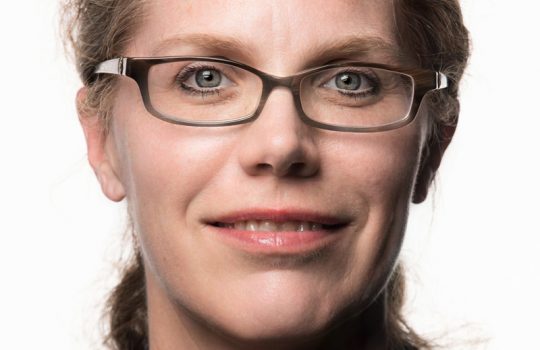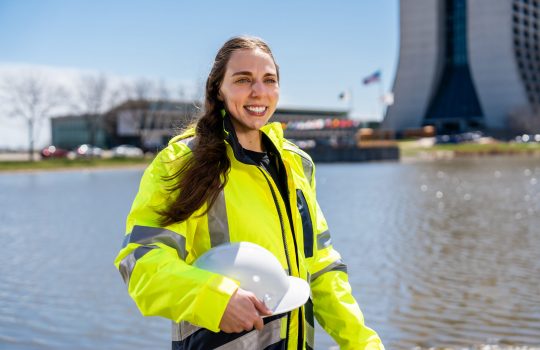
Mingzhi Shen works on the infrastructure that supports the science and the laboratory’s DNS infrastructure, which is like a phone book for the internet. Photo: Reidar Hahn, Fermilab
What motivated you to switch from finance to network management?
I studied finance but found myself uninterested in the subject after I graduated and found a job in the field. You view money differently when you work in finance, and that convinced me that I really preferred technology. Computing consists of ones and zeroes – it’s easier for me to deal with. I went back to school to get a master’s in network engineering and management, and the rest is history.
How did you hear about Fermilab?
I was completing my master’s degree at DePaul University, and like all students, was looking at career options. This is how I found Fermilab. I didn’t know at the time what it meant to work at a DOE research institution, and I’m still learning four years later.
What do you do in your current role?
At Fermilab, I focus on the campus network. The campus network is different from the scientific network. Whereas the science network is designed for moving data generated by the experiments, the campus network handles the infrastructure that supports the science — systems such as the meters that monitor building temperature and provide readings in areas to determine whether it’s safe for workers to go underground or enter other special areas. Other systems, such as security cameras and automated door locks, are used to secure scientific and sensitive areas, and livestreaming systems support lectures and talks.
Beyond that, I’m moving slowly into working with DNS infrastructure. DNS is like a phone book for the internet. When you open your browser and type “Google,” DNS services are what provide you with an IP address to your domain name that goes into the digital world. However, it is much more complicated than that. Unlike phone books, there is no single repository of all the addresses on the internet. Instead, a lot of DNS servers throughout the world constantly communicate with each other to provide this service. Without DNS, many services we take for granted, such as email, web browsing, zoom conferencing or remotely logging into a system would no longer work.
When my office isn’t addressing specific problems, we focus on projects. For example, when people open a browser, it’s not acceptable to wait for a page to load. With this high standard and because Fermilab is a research institution, even IT has some room to work on improvements — without interfering with scientific production, of course. So, we look for ways to more efficiently design and deploy networks that reduce latency time, improve resilience and increase bandwidth.
What do you enjoy most about working at Fermilab?
The people I work with are pretty awesome. I appreciate that if people are against my opinions, they are against my opinions and not against me as a person. This kind of open environment is important for people to be able to discuss things.
What do you like to do when you’re not at work?
I have a three-and-a-half-year-old boy and a 10-month-old boy, so all I want is sleep! I’m also reading a book called something like “What Happens When They Turn Three,” which hasn’t been very helpful. At this age, I feel like I live for others, but in a positive way. I’m making memories with my kids.
Fermilab is a DOE national laboratory funded by the Office of Science.



